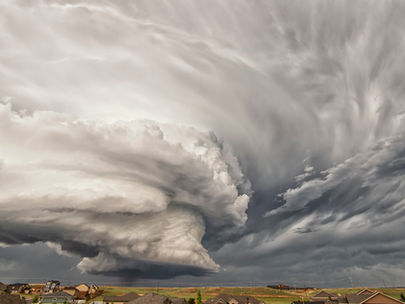top of page
Planette Blog
All the latest Planette news, plus educational posts to explain the science of seasonal/annual/multi-year forecasting.
Subscribe for updates.
The Forecast isn’t Always Fair: Barriers to Accurate Weather Prediction in the Developing World
Weather Forecasting: An Achievement of Modern Physics Numerical Weather Prediction (NWP) is one of the triumphs of modern physics,...

Dr. Hansi Singh
Jun 185 min read


Under the Weather Hood: an Explainer on Traditional Weather Forecasting versus Long-Range Weather Forecasting Approaches
A typical 10-day forecast from a weather app. Folks often ask me how the weather forecasts on their phone’s weather app are different...

Dr. Hansi Singh
May 154 min read


Using Temperature Volatility to Generate Natural Gas Trading Alpha
Capitalize on convenience yield trends before the market prices them in by using Planette temperature forecasts for volatility tracking.

Dinesh Thogulua
Dec 4, 20243 min read


The Science Behind Corn Yields: How Rainfall Shapes America's Most Important Grain
See how rainfall patterns critically impact US corn yields w/ expert analysis of historical trends & exclusive 2025 precipitation forecasts.

Dinesh Thogulua
Nov 19, 20243 min read


Umi™ vs ECMWF vs NOAA: Performance Update
October 2024 Niño 3.4 index results have been released, so we now have an Umi™ performance update relative to both ECMWF & NOAA forecast.

Dr. Hansi Singh
Nov 13, 20241 min read


The Art and Science of Seasonal Forecasting
Seasonal forecasting covers timeframe from 6 weeks to 2 years into the future & is completely different compared to your daily weather app.

Dr. Hansi Singh
Oct 15, 20243 min read


Umi™ and ENSO: A Performance Review from our June 2024 Release to September 2024
Most ENSO models predicted La Niña conditions developing over late summer into fall, while Planette’s Umi™ predicted neutral conditions.

Dr. Hansi Singh
Oct 10, 20242 min read


The Challenge of Subseasonal Forecasting
Subseasonal forecasting covers 2 weeks to 6 weeks into the future and sits right at the intersection between weather and seasonal outlooks.

Dr. Hansi Singh
Sep 9, 20243 min read


The Science of 2-Week Weather Forecasting
Weather forecasting covers the shortest time horizon of predictive science - only 2 weeks - due to the physics of fluid dynamics.

Dr. Hansi Singh
Aug 28, 20243 min read


The Future of Climate Forecasting on "Making Change" Podcast
Clark Nuber's Making Change podcast, hosted by Matt Sartorius, interviewing Planette co-founders about the future of climate forecasting.

Dr. Hansi Singh
Aug 12, 20241 min read


From Weather to Climate: How AI is Reshaping Predictive Sciences
Combining AI & ML with subject-specific knowledge enables significant progress across numerous scientific fields, including climate science.

Dr. Hansi Singh
Jul 31, 20243 min read


El Niño, La Niña, and Volatility in the Earth System
El Niño/La Niña are key ENSO components causing volatile impacts on global weather patterns. Umi™ ENSO forecasts beat NOAA & ECMWF models.

Dr. Hansi Singh
Jul 8, 20243 min read


The Fundamentals of Extreme Heat on a Warming Planet
The planet is getting warmer, and extreme heat events and heat waves are becoming more common across the world due to several reasons.

Dr. Hansi Singh
May 28, 20245 min read


What's going on with record-breaking ocean temperatures?
There are 2 well-understood reasons for record-breaking ocean warmth, and 1 intriguing hypothesis...

Dr. Hansi Singh
May 14, 20245 min read


A Massive Global Coral Bleaching Event is Underway
Massive global coral bleaching event driven by warming oceans is decimating vital reef ecosystems; urgent action needed to save biodiversity

Dr. Hansi Singh
Apr 22, 20244 min read


The Science of Teleconnections
Using the ocean to forecast relies on teleconnections, which is how the ocean communicates to land regions using the atmosphere.

Dr. Hansi Singh
Apr 12, 20244 min read


From Ocean to Atmosphere: How Teleconnections Shape Our Climate
Today Planette explores the two key points that make gap forecasting for climate possible.

Dr. Hansi Singh
Apr 1, 20244 min read


Climate Change and Extreme Weather: A Clear Connection
Planette explains the link between a warming planet and severe weather events.

Dr. Hansi Singh
Mar 11, 20242 min read


Our Warming World and the Growing Threat of Wildfires
As our planet gets hotter, wildfires are becoming more frequent, intense and destructive across the globe. Wildfire risk can be predicted.

Dr. Hansi Singh
Mar 4, 20243 min read


Decoding Weather Beyond 7 Days: Planette's Advanced Forecasting Insights
Traditional weather forecasts are limited beyond 7 days primarily due to the inherent unpredictability of atmospheric weather conditions.

Dr. Hansi Singh
Feb 12, 20243 min read


bottom of page